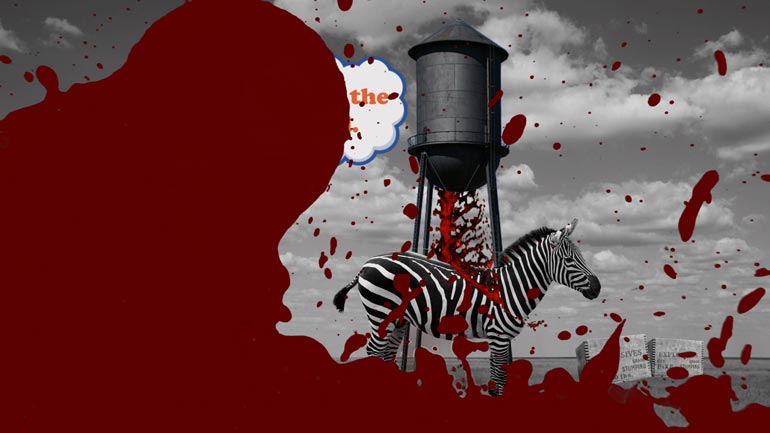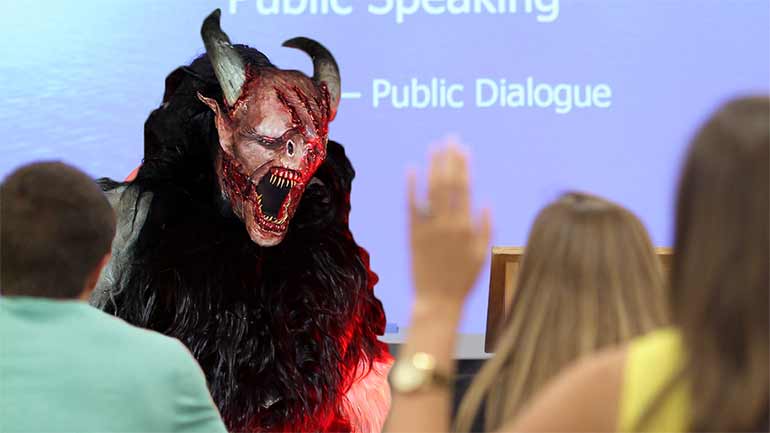ShmoopTube
Where Monty Python meets your 10th grade teacher.
Search Thousands of Shmoop Videos
AP Psychology 2.1 Motivation and Emotion 30 Views
Share It!
Description:
AP Psychology 2.1 Motivation and Emotion. According to drive reduction theory, bodies want to reduce drive to return to a state of what?
Transcript
- 00:04
Here's your shmoop du jour brought to you by driving that thing [busy traffic on a highway]
- 00:07
no one else but you is any good at.. All right according to the drive reduction
- 00:11
theory bodies want to reduce drive to return to a state of what and here the
- 00:15
potential answers we don't see california in there as an option... Well
- 00:20
what is the drive exactly should we put on a seat belt for this one well no not [Car fast forwarding through a drive]
Full Transcript
- 00:25
necessarily drives are naturally occurring states that motivate us to
- 00:28
perform behaviors that help keep us alive like eating and drinking or [woman drinking and a girl eating an ice-cream]
- 00:32
starting a new show on netflix so according to drive reduction theory do
- 00:36
bodies want to return to a state of A arousal.. Well arousal is our body's response to
- 00:41
something, it's not a state that our bodies are actively trying to return to [Woman in a bedroom and the telephone rings]
- 00:45
in fact a state of arousal may also be a drive that our bodies are trying to
- 00:50
reduce. We can cross off A all right or is it C sleep, for some of you sleep may seem
- 00:55
like it's your natural state especially while you're sitting through calculus [classroom of students sleeping]
- 00:58
but this isn't what drive reduction theory refers to being sleepy is
- 01:03
actually a drive that may lead to sleep but sleep isn't the end goal in drive [Boy sleeping on a table]
- 01:09
reduction theories, let's get rid of C yeah, that was kind of tricky. How about
- 01:13
D incentive, okay so incentive isn't actually a state it's just something [A man wearing a balaclava robbing a store]
- 01:17
that motivates or encourages someone to do something, this is definitely not what
- 01:21
drive theories all about so we can cross off D. Is it E thermoregulation well
- 01:26
thermoregulation is a process that allows the body to maintain its core [boy wearing shorts and t-shirt in a cold snowy forest]
- 01:29
internal temperature that 98.6 thing. Like sleep, an even internal temperature may
- 01:34
be achieved because of a specific drive but that isn't the only goal of drive [boy with a thermometer in his mouth in bed]
- 01:39
reduction theory we can cross off E from our list leaving us with B
- 01:42
homeostasis; homeostasis is basically known as our bodies baseline or normal [girl meditating on a mountain]
- 01:47
state drive reduction theory states that when we experience a drive that's our
- 01:52
body telling us that we need to do something like eat or drink to get back [girl thinking about drinking]
- 01:55
to our baseline state so the correct answer is B homeostasis so we've learned
- 02:00
a little about drive reduction theory namely that it's all about getting our
- 02:03
bodies back to normal or their baseline state our baseline state is three cups [girl walking with a mug of coffee]
- 02:08
of coffee deep but well everyone's different
- 02:12
boy
Up Next
AP Psychology 1.1 Social Psychology. Which of the following best describes social psychology?
Related Videos
AP Psychology 1.1 States of Consciousness. Who conducted research on REM sleep deprivations?
AP Psychology 1.2 Cognition. Which of the following strategies would work best for generating new ideas?
AP Psychology 1.2 Sensation and Perception. The cells in the back of the eye that only see in black and white are called what?
AP Psychology 1.2 Social Psychology. What is the best choice for producing better productivity?




